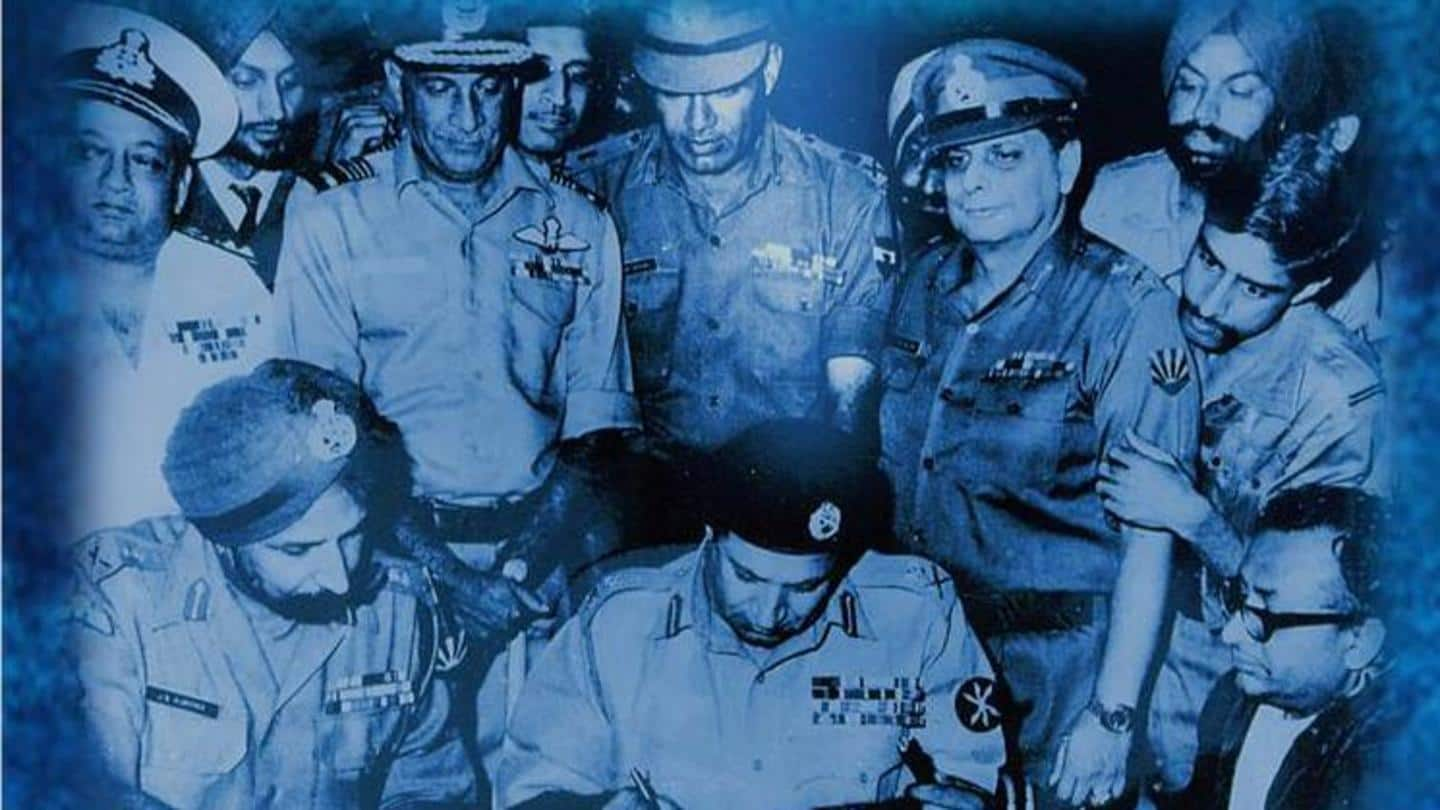
Swarnim Vijay Diwas: Know history, significance of 1971 Indo-Pak War
What's the story
Vijay Diwas, December 16, is a day to honor the valor of the Indian soldiers.
Swarnim Vijay Varsh marks the 50th anniversary of India's victory in the 1971 war with Pakistan.
The war notably led to the creation of Bangladesh from East Pakistan.
The country, even today, celebrates the win with dignity and passion.
Context
Why does it matter?
On December 16, 1971, India defeated Pakistan after 13 days of the war.
On Kargil Diwas, India pays tribute to the Indian Army which proved its proficiency in the war.
Pakistan sustained the most casualties in this battle, with around 8,000 killed and 25,000 injured, while India lost 3,000 soldiers and 12,000 were injured.
East Pakistan, now Bangladesh, earned independence after India's victory.
Do you know?
Biggest military surrender after WWII
On this day, Amir Abdullah Khan Niazi, then a Major-General in the Pakistan Army, surrendered to the united troops of the Indian Army and Bangladesh's Mukti Bahini.
He surrendered with 93,000 Pakistani forces. He also signed the 'Instrument of Surrender' at Ramna Race Course in Dacca (now Dhaka, the capital of Bangladesh).
Then Lieutenant General Jagjit Singh Aurora accepted the surrender from Pakistan.
Information
What happened in the war?
The war began on December 3, 1971, and ended 13 days later, on December 16. It was one of the most violent wars in the 20th century, witnessing the displacement of 10 million refugees and the Pakistani military killing three million civilians.
History
What happened on the day of surrender?
Lieutenant General Aurora arrived by helicopter at Dhaka airport at 4:30 pm.
He and General Niazi signed the surrender paperwork together.
General Niazi's revolver was handed over to Lieutenant General Aurora.
On the other side, General Manekshaw notified Indira Gandhi about the stunning triumph.
The entire Parliament House erupted in joy when the victory was declared.
Details
How was the operation done?
General Manekshaw informed General Jacob that he needed to get to Dhaka as soon as possible.
India had only 3,000 soldiers and was 30 kilometers from Dhaka. Pakistan, on the other side, had 26,400 troops in Dhaka.
The ceasefire was about to end as India was preparing to infiltrate Dhaka.
There was silence as General Jacob entered Niazi's room and kept the surrender papers.